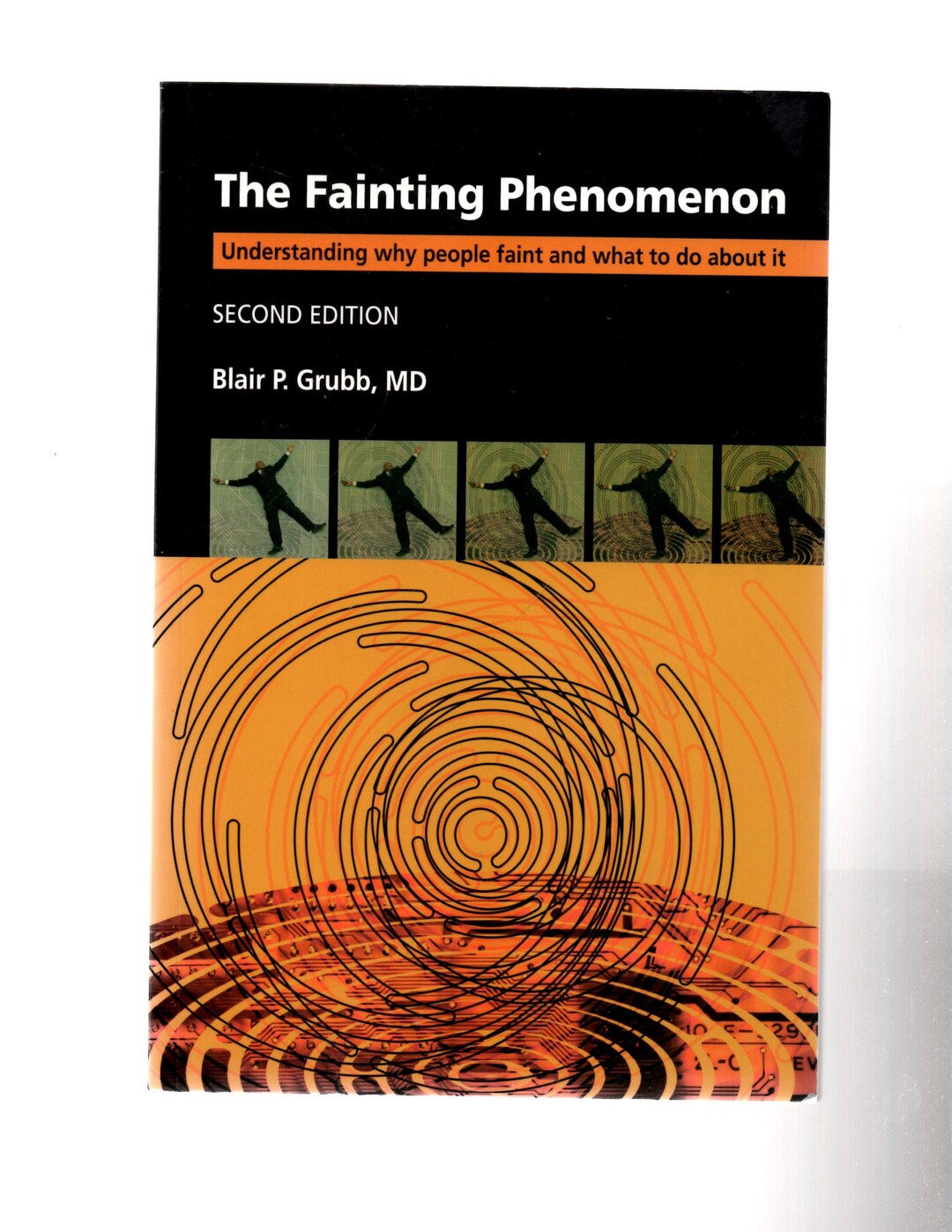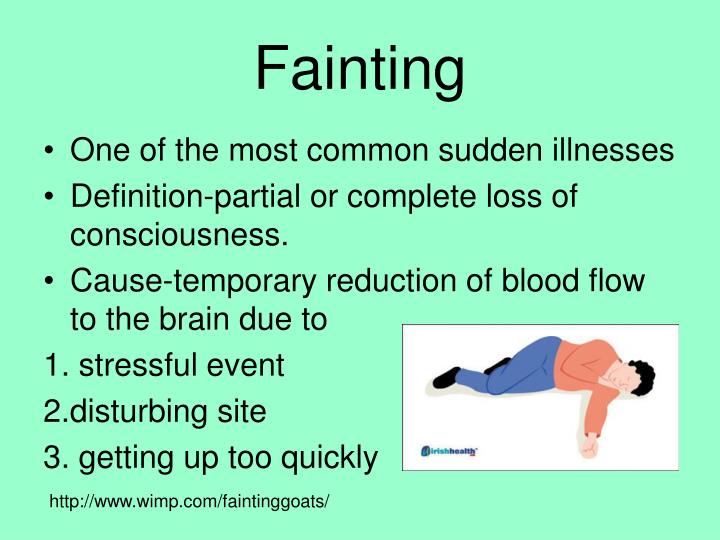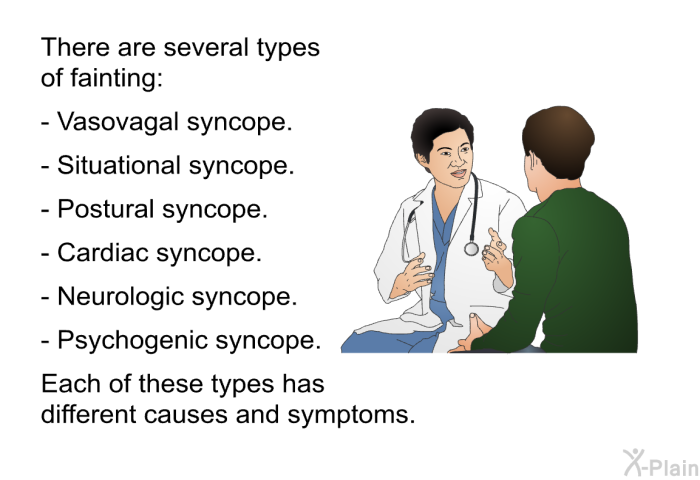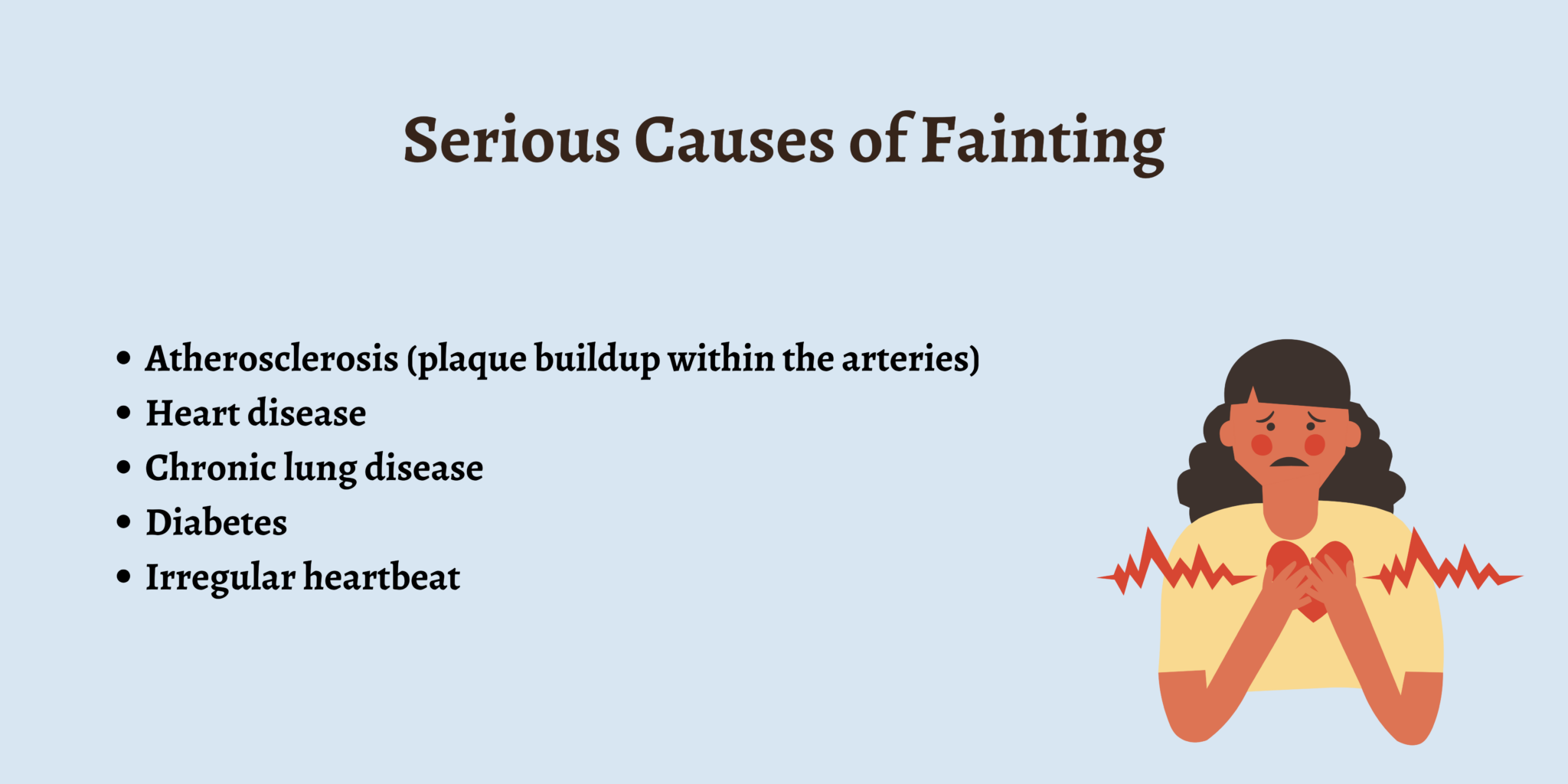Understanding the Phenomenon of Infrequent Fainting: Causes, Implications, and Management
Related Articles: Understanding the Phenomenon of Infrequent Fainting: Causes, Implications, and Management
Introduction
In this auspicious occasion, we are delighted to delve into the intriguing topic related to Understanding the Phenomenon of Infrequent Fainting: Causes, Implications, and Management. Let’s weave interesting information and offer fresh perspectives to the readers.
Table of Content
Understanding the Phenomenon of Infrequent Fainting: Causes, Implications, and Management

Fainting, also known as syncope, is a temporary loss of consciousness caused by a sudden decrease in blood flow to the brain. While fainting can be alarming, it is generally a benign condition that resolves on its own. However, infrequent fainting can raise concerns and warrant investigation, especially if it is accompanied by other symptoms.
This article explores the various reasons behind infrequent fainting, the potential implications of this phenomenon, and strategies for managing it effectively.
Causes of Infrequent Fainting:
Infrequent fainting can stem from diverse factors, ranging from benign to more serious conditions. Here are some common causes:
- Vasovagal Syncope: This is the most frequent type of fainting, triggered by a sudden drop in blood pressure due to a change in heart rate and blood vessel dilation. It can be induced by triggers such as stress, pain, fear, prolonged standing, or even a full bladder.
- Orthostatic Hypotension: This condition involves a sudden drop in blood pressure upon standing, leading to dizziness and sometimes fainting. It can be caused by dehydration, certain medications, or underlying medical conditions like diabetes or Parkinson’s disease.
- Cardiac Syncope: This type of fainting is caused by a heart rhythm problem, such as bradycardia (slow heart rate) or tachycardia (fast heart rate), or a structural heart defect. It can be a sign of a more serious underlying cardiac issue.
- Neurological Syncope: Fainting can also be caused by neurological conditions like seizures or migraines. In such cases, other neurological symptoms might be present.
- Metabolic Causes: Certain metabolic disorders, such as hypoglycemia (low blood sugar) or hypothyroidism (underactive thyroid), can also cause fainting.
- Medications: Some medications can lower blood pressure or cause irregular heart rhythms, potentially leading to fainting.
Implications of Infrequent Fainting:
While infrequent fainting may seem insignificant, it can be a sign of an underlying medical condition that requires attention. It is crucial to consult a healthcare professional to determine the root cause and receive appropriate management.
- Underlying Medical Conditions: Infrequent fainting can be a symptom of various medical conditions, some of which can be serious. Identifying the underlying cause is essential for appropriate treatment and management.
- Risk of Injury: Fainting can lead to falls and injuries, especially in older adults or individuals with mobility issues.
- Impact on Quality of Life: Frequent fainting can significantly impact an individual’s quality of life, restricting their activities and causing anxiety.
Management of Infrequent Fainting:
The management of infrequent fainting depends on the underlying cause.
- Lifestyle Modifications: For vasovagal syncope, simple lifestyle changes like staying hydrated, avoiding triggers, and gradually increasing physical activity can be helpful.
- Medications: In cases of orthostatic hypotension or cardiac syncope, medications might be prescribed to regulate blood pressure or heart rhythm.
- Medical Procedures: For certain cardiac issues, medical procedures like pacemaker implantation might be necessary.
- Monitoring: Continuous monitoring, such as Holter monitoring or event recorders, can help identify the cause of fainting and guide treatment.
FAQs on Infrequent Fainting:
Q: When should I see a doctor for infrequent fainting?
A: It is advisable to seek medical attention if you experience any of the following:
- Fainting without a clear trigger.
- Fainting accompanied by chest pain, shortness of breath, or other concerning symptoms.
- Fainting that occurs frequently or becomes more severe.
- Fainting that occurs in conjunction with other medical conditions.
Q: What are the potential risks associated with infrequent fainting?
A: While infrequent fainting can be relatively benign, it can lead to falls and injuries, especially in vulnerable populations. It can also be a sign of a more serious underlying medical condition that requires attention.
Q: Can infrequent fainting be prevented?
A: Preventing fainting depends on the underlying cause. Lifestyle modifications, medication, and medical procedures can be effective in managing and preventing fainting in some cases.
Q: What are the long-term implications of infrequent fainting?
A: The long-term implications of infrequent fainting depend on the underlying cause. If the underlying condition is addressed, the risk of future fainting episodes can be significantly reduced. However, in some cases, the condition might require ongoing management.
Tips for Managing Infrequent Fainting:
- Stay Hydrated: Dehydration can contribute to orthostatic hypotension and fainting. Drink plenty of fluids throughout the day.
- Avoid Triggers: Identify and avoid triggers that induce fainting, such as stress, pain, or standing for long periods.
- Gradual Position Changes: When standing up from a seated or lying position, do so slowly to allow your blood pressure to adjust.
- Regular Exercise: Regular exercise can improve blood circulation and heart health, reducing the risk of fainting.
- Follow Medical Advice: Consult a healthcare professional for proper diagnosis and management of infrequent fainting.
Conclusion:
Infrequent fainting, while often benign, can be a symptom of underlying medical conditions. It is important to seek medical attention to determine the cause and receive appropriate management. Understanding the potential causes and implications of infrequent fainting can empower individuals to take proactive steps towards their health and well-being. By addressing the underlying cause, individuals can reduce the risk of future fainting episodes and live a full and active life.




:max_bytes(150000):strip_icc()/1298399-article-img-causes-of-fainting1-5a5520127bb283003773f0c9.png)



Closure
Thus, we hope this article has provided valuable insights into Understanding the Phenomenon of Infrequent Fainting: Causes, Implications, and Management. We appreciate your attention to our article. See you in our next article!